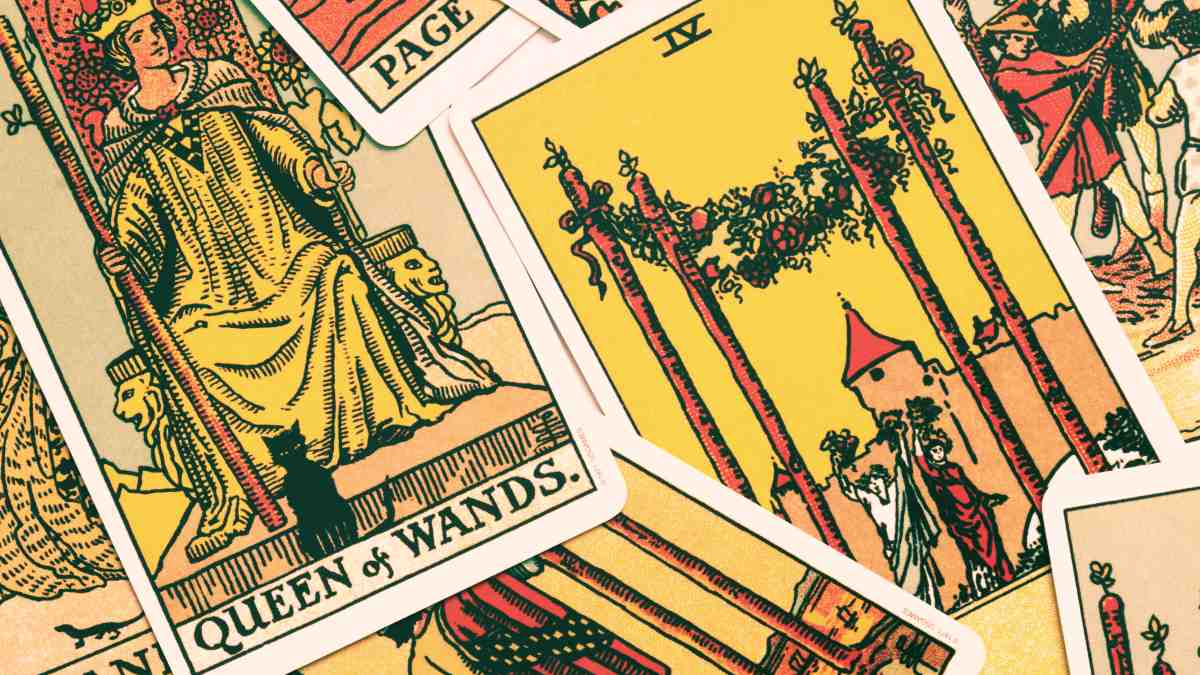
3 Psychological Allures Of Tarot Reading That Fuel Its Popularity
Mysticism, pseudoscience or nonsense—call it what you want, but research shows tarot reading to have some surprising psychological benefits.

By Mark Travers, Ph.D. | April 09, 2024
Tarot readings have long captivated human curiosity, offering intriguing glimpses into both the mysteries of the future and the complexities of the present. Rooted in ancient traditions, tarot cards serve as tools for divination and self-reflection, utilizing symbolism and intuition to illuminate potential pathways forward. Despite skepticism, psychology recognizes the profound impact of tarot on individuals' emotions and perceptions, as it delves into the subconscious, triggering powerful psychological responses that reshape thoughts and feelings.
At the intersection of tarot and psychology is an interplay of symbolism, intuition and the human psyche. Tarot readings operate on the belief that the imagery and arrangement of cards can access the collective unconscious, tapping into deeper layers of awareness beyond conscious thought. From a psychological perspective, this process aligns with concepts such as archetypes, symbolism and narrative therapy, underscoring the significance of storytelling and symbolism in shaping our understanding of ourselves and the world.
Here are three factors often contributing to a sense of transformation following a tarot session.
1. Positive Expectations And Placebo Effect
Individuals often approach a tarot reading with a sense of anticipation and hope. This optimistic outlook sets the stage for the placebo effect—a phenomenon where simply believing in the effectiveness of a treatment can lead to real improvements in well-being.
Research confirms that these positive expectations strongly influence our experiences. Approaching a tarot reading with optimism tends to make it feel more meaningful and transformative. Those expecting positive outcomes often report feelings of relief, comfort and empowerment afterward. This shows how our anticipation of a positive outcome can shape our perception, giving the tarot reading a sense of importance and effectiveness.
Moreover, the placebo effect extends beyond mere perception to produce tangible changes in emotional well-being. People who enter a tarot reading with high hopes are more likely to feel uplifted, at peace or gain clarity about their life. These positive emotions can then have positive effects in other areas of life—promoting resilience, creativity and better connections with others.
2. Therapeutic Effect Of Narrative And Storytelling
Central to the tarot experience is storytelling, where each drawn card becomes a chapter in an individual's life narrative. This narrative construction, grounded in symbolism and intuition, offers significant therapeutic potential, providing a framework for exploring inner thoughts, emotions and aspirations.
A review of studies suggests that elements within these stories, such as motivations, feelings and life's meaning, can offer insights into one's happiness and fulfillment. From a psychological perspective, storytelling serves as a tool for making sense of experiences and constructing meaning. During a tarot reading, individuals reflect on past experiences, current challenges and future possibilities, gaining insight into recurring themes, unresolved conflicts and hidden motivations, deepening their understanding of themselves and their life journey.
Emotional responses evoked by storytelling also serve as catharsis, facilitating healing. Through the narrative lens of tarot, individuals may find release and relief as buried emotions surface and are acknowledged. This emotional expression is crucial for processing grief, trauma or uncertainty in a supportive environment. Additionally, narratives foster empathy and connection. Engaging with tarot's imagery invites individuals to explore different perspectives, promoting understanding and compassion toward oneself and others.
3. Confirmation Bias
Confirmation bias refers to the tendency for individuals to favor information that aligns with their existing beliefs and desires, while dismissing contradictory evidence. This phenomenon might play a significant role in tarot readings, where the interpretation of ambiguous symbols can be highly subjective.
During a tarot reading, individuals may unconsciously focus on cards or interpretations that validate their preconceived notions about themselves or their lives. For instance, someone seeking career validation may emphasize cards suggesting success while ignoring potential challenges. This selective attention reinforces their worldview, providing a sense of affirmation.
However, confirmation bias within tarot readings also prompts introspection. Confronting alternative interpretations may compel individuals to reconsider their perspectives and decisions. For example, a card indicating unexpected change may prompt reevaluation of one's path.
Tarot readings thus challenge entrenched beliefs and promote cognitive flexibility. By confronting biases, tarot becomes a catalyst for profound shifts in perception and behavior. Rather than reinforcing existing views, it fosters self-reflection and exploration, encouraging individuals to embrace uncertainty and new insights. Through this process, individuals gain awareness of biases and a deeper understanding of themselves and their surroundings.
Curious to know what your belief in astrology says about you and your personality? Take the Belief In Astrology Inventory to learn more.
A similar version of this article can also be found on Forbes.com, here.
